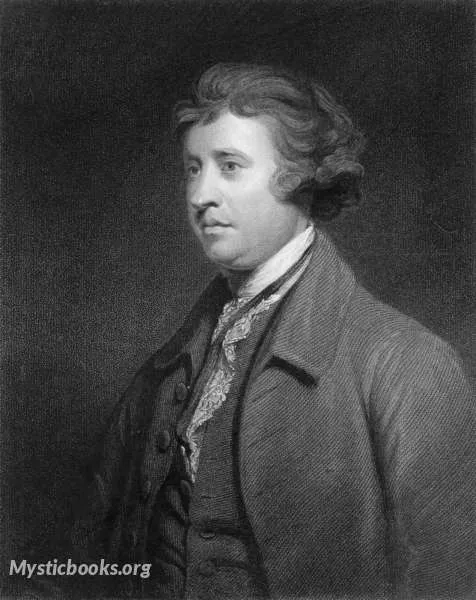
Timeline
Title
Country/Nationality
Edmund Burke
Edmund Burke was an Irish statesman, economist, and philosopher. Born in Dublin, Burke served as a member of parliament (MP) between 1766 and 1794 in the House of Commons of Great Britain with the Whig Party after moving to London in 1750.
Burke was a proponent of underpinning virtues with manners in society and of the importance of religious institutions for the moral stability and good of the state. These views were expressed in his A Vindication of Natural Society. He criticized the actions of the British government towards the American colonies, including its taxation policies. Burke also supported the rights of the colonists to resist metropolitan authority, although he opposed the attempt to achieve independence. He is remembered for his support for Catholic emancipation, the impeachment of Warren Hastings from the East India Company, and his staunch opposition to the French Revolution.
In his Reflections on the Revolution in France, Burke asserted that the revolution was destroying the fabric of good society and traditional institutions of state and society and condemned the persecution of the Catholic Church that resulted from it. This led to his becoming the leading figure within the conservative faction of the Whig Party which he dubbed the Old Whigs as opposed to the pro–French Revolution New Whigs led by Charles James Fox.
In the 19th century, Burke was praised by both conservatives and liberals. Subsequently in the 20th century, he became widely regarded as the philosophical founder of modern conservatism.
Burke was born in Dublin, Ireland. Burke adhered to his father's faith and remained a practicing Anglican throughout his life, unlike his sister Juliana who was brought up as and remained a Roman Catholic.’ Later, his political enemies repeatedly accused him of having been educated at the Jesuit College of St. Omer, near Calais, France; and of harbouring secret Catholic sympathies at a time when membership of the Catholic Church would disqualify him from public office per Penal Laws in Ireland.
In 1744, Burke started at Trinity College Dublin, a Protestant establishment which up until 1793 did not permit Catholics to take degrees. In 1747, he set up a debating society Edmund Burke's Club which in 1770 merged with TCD's Historical Club to form the College Historical Society, the oldest undergraduate society in the world.
The late Lord Bolingbroke's Letters on the Study and Use of History was published in 1752 and his collected works appeared in 1754. This provoked Burke into writing his first published work, A Vindication of Natural Society: A View of the Miseries and Evils Arising to Mankind, appearing in Spring 1756. Burke imitated Bolingbroke's style and ideas in a reductio ad absurdum of his arguments for atheistic rationalism in order to demonstrate their absurdity.
In December 1765, Burke entered the House of Commons of the British Parliament as Member for Wendover in Buckinghamshire, a pocket borough in the gift of Lord Fermanagh, later 2nd Earl Verney and a close political ally of Rockingham. After Burke delivered his maiden speech, William Pitt the Elder said he had "spoken in such a manner as to stop the mouths of all Europe" and that the Commons should congratulate itself on acquiring such a Member.
Burke died in Beaconsfield, Buckinghamshire, on 9 July 1797 and was buried there alongside his son and brother.
Books by Edmund Burke
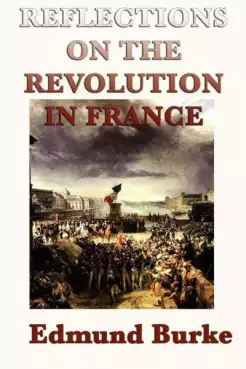
Reflections on the Revolution in France
Reflections on the Revolution in France is a political pamphlet written by the Irish statesman Edmund Burke and published in November 1790. It is fundamentally a contrast of the French Revolution to that time with the unwritten British Constitution a...
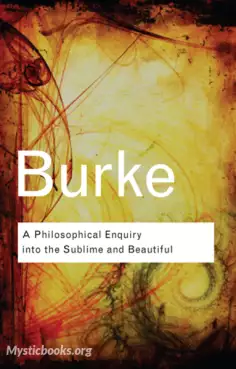
A Philosophical Enquiry
Burke's A Philosophical Enquiry is an important treatise in the history of philosophical aesthetics, putting forth a theory of two concepts of central, perennial importance to the field of aesthetics, namely, the beautiful and the sublime.
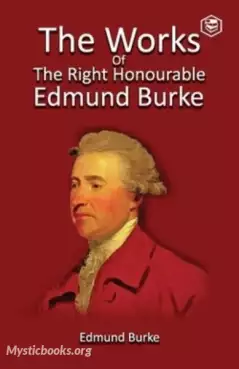
The Works of the Right Honourable Edmund Burke, Vol. 01
Edmund Burke was an Irish statesman, economist, and philosopher. Born in Dublin, he moved to London in 1750 and later served as a member of parliament between 1766 and 1794 in the House of Commons of Great Britain. He belonged to the Whig Party. Bur...
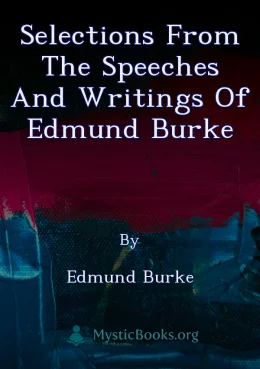
Selections from the Speeches and Writings of Edmund Burke
This book presents a selection of speeches and writings by Edmund Burke, a prominent British statesman and philosopher. The work delves into Burke's political thought, exploring his views on the French Revolution, the nature of government, the import...